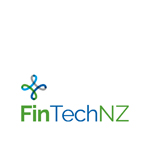Finland’s digital money system for asylum seekers shows what blockchain technology can offer the unbanked.
For a refugee in a new country, identity—at least in the official sense—can be among the hardest things to recover. And without an official ID it is nearly impossible to advance in society.
Finland, which like many European nations has recently seen a large influx of asylum seekers, is using a cryptographic ledger called blockchain to help them get on their feet faster.
For two years the Finnish Immigration Service has been giving asylum seekers who don’t have bank accounts prepaid Mastercards instead of the traditional cash disbursements, and today the program has several thousand active cardholders. Developed by the Helsinki-based startup MONI, the card is also linked to a unique digital identity stored on a blockchain, the same technology that underpins the digital currency Bitcoin.
Bitcoin has demonstrated how blockchain technology can be used to transmit value between individuals without the need for corporate middlemen. Core to the technology is a software protocol that creates a permanent record of every single Bitcoin transaction. Anyone can access this record, called the blockchain, by downloading the Bitcoin software. Computers running the software all over the world maintain the blockchain, and use it to verify new transactions (see “What Bitcoin Is, and Why It Matters”).
Blockchains are seen as a promising avenue for opening new financial opportunities to people who don’t have access to modern financial services. Besides eliminating the need for a traditional financial institution to mediate transactions, they provide a means for creating and securely storing a digital form of identification that can’t be corrupted and is easily accessible from anywhere. That’s why the United Nations is exploring using the technology in its effort to bring legal identification to the more than one billion people who don’t have official documents.
In Finland, a MONI card can help address several challenges facing asylum seekers, says Jouko Salonen, director of the Finnish Immigration Service. Most importantly, a MONI account functions like a bank account, removing a major barrier to gaining employment. People can use their accounts to buy things, pay bills, and even receive direct deposits from employers. Meanwhile, every transaction is recorded in a public, virtually incorruptible database maintained by a decentralized global network of computers. That enables the Immigration Service to keep track of the cardholders and their spending.
The technology helps unbanked asylum seekers advance because what is typically keeping them from getting bank accounts and jobs is that they are missing a form of strongly authenticated identity, says Salonen. “We have found a way to solve that.”
MONI’s technology uses one of a number of public blockchains as the means of transferring value—but in a way that to the users seems like using a debit card. A cardholder can pay for things at Mastercard terminals, or enter a number into a Web form to make payments online. MONI takes care of the cryptographic handshake necessary to execute the digital currency transaction as well as the conversion from digital currency back to fiat currency.
In addition to the refugee card program, MONI’s service is available to beta testers in Finland, and the company has plans to launch a consumer product soon throughout Europe. An account costs €2 per month, and the company takes a small fee each time the user makes a purchase, and for international transactions.
Antti Pennanen, MONI’s founder and CEO, likens blockchain technology today to the early Internet, which was only accessible to a select few with the means and technical wherewithal to use it. His says MONI’s technology is somewhat analogous to a modem, which made the Internet usable for more people.
Pennanen says word of MONI has spread to refugee camps throughout Europe, and he expects there to be substantial demand among those displaced communities once the service is available in other countries. Ultimately, the company wants to be able to help anyone who can’t access the modern financial system, he says. “Our purpose has always been financial inclusion, and especially to help people in developing countries.”
Source: www.technologyreview.com






